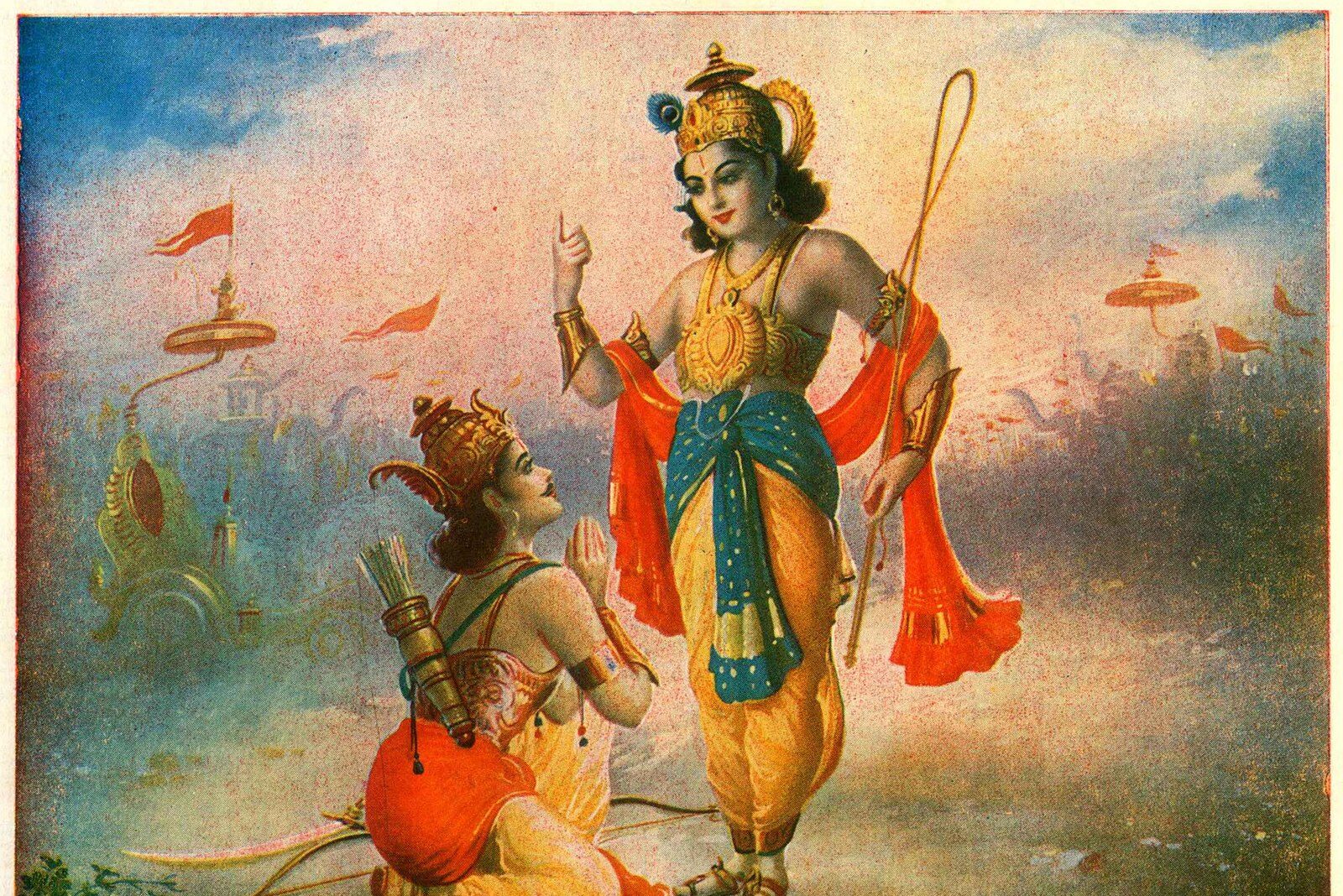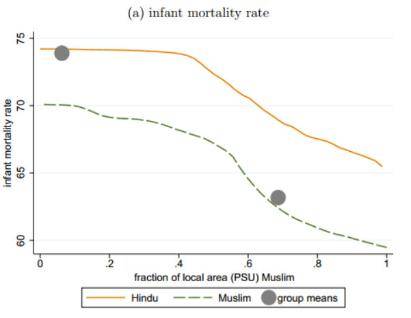
Everyday the world seems to get a little stranger. Between the health and economic concerns of a global pandemic, along with the civil unrest induced by George Floyd’s murder, the United States is witnessing enough stress-inducing material to make even the most tranquil person’s hair fall out and blood pressure rise. With a presidential election right around the corner, it’s possible the country’s unruly social climate could become even more tumultuous.
The uncertainty of the current times highlights a universal truth the human race has been grappling with for eternity: that so much of what happens in the world is out of our control.
While the reality of such a truth can often feel overwhelming, gaining an in-depth understanding of how external forces act upon us, and then focusing on the parts of life we can control, can equip us to stay calm during trying times, enabling us to rise above situations of chaos.
According to the Hindu sacred text the Bhagavad Gita, every individual is an atman (closest English translation is soul) encased in an ever-changing material body. The soul is eternal, but material nature is temporary. Like clothes covering the body, the physical elements and the subtle elements — mind, intelligence, and ego — cover the pure, eternal soul.
Material energy is in a state of constant transformation, shifting over time from one form to the next, displaying various qualities. Material nature is expressed, and thus, perceived through these qualities. The Gita categorizes these qualities into three primary modes: goodness (sattva-guna), passion (raja-guna), and ignorance (tama-guna).
By development of the mode of goodness, one becomes advanced in knowledge, wise, and not very affected by material miseries. A person dominated by the mode of passion will work extremely hard to attain sense gratification. One in ignorance, also called the mode of darkness, is unmotivated, experiences a loss of intelligence, and can be degraded to madness.
Life is complex, and therefore, hardly any object or person in the world ever embodies a particular mode wholly. All things generally exhibit intricate combinations of the three modes.
The three modes pervade all aspects of life, be it person, music, action, emotion, food, work, faith, etc. The consciousness and quality of a person’s life is shaped by the modes they choose to associate with. Every person has a side of goodness, a side of passion, and a side of ignorance. Associating with a person or object of a particular mode, cultivates that same mode within us.
The music we listen to, the books and movies we consume, the food we eat, and the people we spend time with are all absorbed by our consciousness, shaping our habits and perceptions of reality.
An action in one of the three modes generates more actions in that same mode which, in turn, affects how we view the world.
Take the various ways we eat, for example.
A person in the mode of passion generally sees eating as a means to attaining some objective. This could mean eating what is most convenient in order to maximize time to work and achieve a particular goal, or it could mean eating nutritious food with the mentality that such food will provide the strength and health necessary to pursue a certain desire — be it bodily beauty, the opposite sex, a promotion in work, etc.
In either case, a person is eating with the self-absorbed consciousness of endeavoring to gratify the senses. The satisfaction one experiences by achieving a goal, however, is flickering. The feeling of hankering is never satiated and, as a result, drives one to want more. Unchecked desire for worldly pleasure can cause a person to prioritize one’s own ambition over the welfare of others. This mentality causes people to view others as either an asset or hindrance to their objective, obstructing the ability to perceive the unity that exists between all things.
People in the mode of goodness, however, almost always eat healthy, nutritious food. They may even start their own vegetable garden, cultivate it, and then harvest the yield. By growing one’s own crops, and using the fresh ingredients to make a wholesome meal, a person not only properly nourishes the body, but also eats with an understanding of the energy it took to provide such food, as well as appreciate the miracle of how that food was created.
Such an understanding creates a feeling of joy and fulfillment, as well as uplifts one’s awareness of the deep spiritual connection within all of creation. Both this knowledge and joy compels a person to live a virtuous life.
People in the mode of darkness generally won’t put much time or energy into preparing what they eat. Eating for them is about what’s easiest and satisfies the tongue, with no regard for how the food will affect their body and mind. They feel no sense of gratitude for what they are eating, nor do they strive to achieve any kind of goal. Those in darkness discern no ultimate truth to reality. Closing themselves off from help, they lack the intelligence to become free from the blindfold of ignorance.
The difficulties of life begin when we contemplate a material object we find ourselves attracted to. Overly contemplating such an object, our attachment grows. Strong attachment leads to a powerful longing, which becomes lust. When this lust goes unsatisfied, frustration arises. Frustration transforms into anger, and this anger bewilders us. Intelligence is lost when we become bewildered, and without proper intelligence, delusion takes hold, making it impossible to understand the highest spiritual truths of life.
In this way, the mode of passion and ignorance bind us to the material world by pulling us down a path that leads to forgetfulness of our spiritual identity. In fact, even the mode of goodness can be binding, as it is easy to develop attachment for the worldly knowledge, joy, and wisdom produced by its effect.
Though it might have its own drawbacks, it is ultimately through the mode of goodness one can rise above the troubles of material existence. The peace, clarity, and knowledge provided by the mode of goodness puts one in the optimal position to focus on transcendental endeavors.
The more we try to exploit nature, the more nature’s modes pull us under their control. By refraining from becoming attached to superfluous sense objects, and living a disciplined life filled with gratitude, a person can rise to the mode of goodness through which he or she can pursue the Absolute.
But because nature’s modes are active forces that compel us to behave and act in a certain way, it can be very difficult to practice the discipline that enables the rise from ignorance and passion to the mode of goodness.
By choosing to associate with advanced spiritual practitioners, however, our own spiritual consciousness can become revived, giving us the ability to act in our best self-interest. As we become more spiritually enlivened by associating with advanced practitioners, we will become more inclined to live life in the mode of goodness, because the mode of goodness is what will help us achieve our spiritual aims.
So listen to spiritual music, read transcendental books, serve a higher good, such as the well being of others, and reach out to elevated individuals. By choosing to associate with spiritual energy, we can become like the eye of a hurricane, and remain calm and peaceful, even amidst the chaos of uncertainty that swirls around us.
For through spiritual practice, we can rise above the anxieties caused by the three modes of nature — not only as they appear through today’s most pressing crises — but to truly gain control of our lives through every joy and sorrow.








































